February 21 stands as one of history’s most eventful days, witnessing the rise and fall of empires, groundbreaking discoveries, and moments that shaped our modern world across centuries of human achievement.
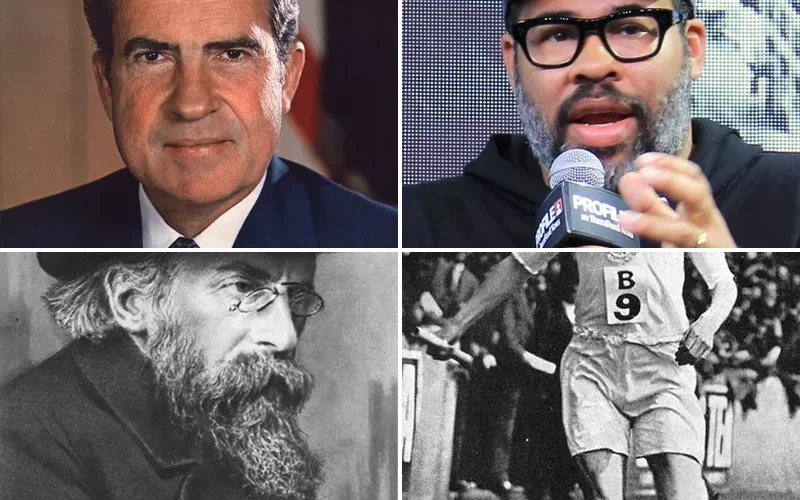
Politics and Government Events on February 21
1972 – Nixon Visits China for Historic Diplomatic Breakthrough
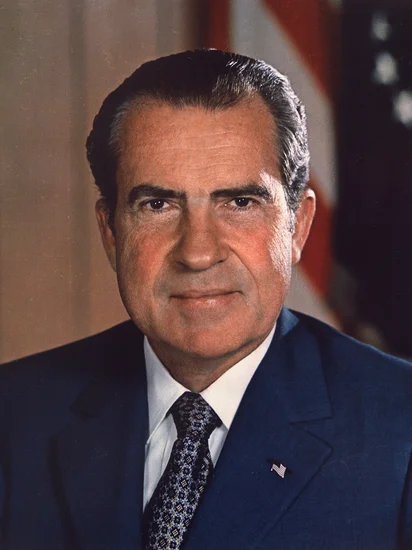
President Richard Nixon embarked on his groundbreaking diplomatic mission to China, fundamentally reshaping global politics. The historic visit marked the first time a sitting American president had traveled to Communist China.
Nixon’s meetings with Chairman Mao Zedong and Premier Zhou Enlai opened new channels of communication between the superpowers. This diplomatic revolution altered the balance of Cold War politics and established the foundation for modern Sino-American relations.
1921 – Rezā Shāh Seizes Control of Tehran in Military Coup
Iranian military officer Rezā Shāh successfully orchestrated a coup d’état that brought him to power in Tehran. The bloodless takeover ended the weak rule of the Qajar dynasty and established strong centralized authority.
Rezā Shāh’s rise to power initiated sweeping modernization reforms throughout Iran. His authoritarian rule transformed the country’s military, infrastructure, and administrative systems over the following decades.
1952 – Churchill Abolishes Identity Cards in Britain

Prime Minister Winston Churchill’s government eliminated mandatory identity cards that had been required during World War II. The decision reflected Britain’s commitment to restore peacetime civil liberties after years of wartime restrictions.
Churchill famously declared the move would “set the people free” from government surveillance measures. The abolition of identity cards became a powerful symbol of Britain’s return to democratic normalcy.
1921 – Georgia Adopts First Democratic Constitution
The Constituent Assembly of the Democratic Republic of Georgia officially adopted the country’s first democratic constitution. This milestone established fundamental rights and democratic institutions for the newly independent nation.
The constitution created a parliamentary system with strong protections for individual freedoms and minority rights. Georgia’s democratic experiment would prove short-lived as Soviet forces invaded the country within months.
1975 – Watergate Conspirators Sentenced to Prison
Former Attorney General John Mitchell and White House aides H.R. Haldeman and John Ehrlichman received prison sentences for their roles in the Watergate scandal. The convictions represented the culmination of America’s greatest political crisis since the Civil War.
The sentencing demonstrated that even the highest government officials were subject to the rule of law. These convictions helped restore public confidence in American democratic institutions after the constitutional crisis.
2022 – Putin Recognizes Ukrainian Separatist Regions
Russian President Vladimir Putin formally recognized the Luhansk and Donetsk People’s Republics as independent states, defying international law. Putin immediately ordered troops into these Ukrainian territories, escalating the crisis that would soon become a full-scale invasion.
The international community condemned Putin’s actions as a violation of Ukraine’s sovereignty and territorial integrity. This pivotal moment marked the beginning of the largest military conflict in Europe since World War II.
Military and Naval History on February 21
1916 – Battle of Verdun Begins in World War I
German forces launched their massive offensive against the French fortress city of Verdun, initiating one of the longest battles in human history. The German strategy aimed to “bleed France white” by attacking a position the French would defend at all costs.
The Battle of Verdun would rage for 302 days, consuming over 700,000 casualties from both sides. This horrific battle became a symbol of French determination and the devastating futility of trench warfare.
1945 – Japanese Kamikaze Planes Strike American Fleet at Iwo Jima
Japanese suicide pilots launched devastating attacks against the American naval fleet supporting the invasion of Iwo Jima. The kamikaze strikes sank the escort carrier USS Bismarck Sea and severely damaged the fleet carrier USS Saratoga.
These attacks demonstrated Japan’s desperate determination to defend its home islands through suicide tactics. The successful kamikaze missions highlighted the enormous costs American forces would face in any invasion of Japan proper.
1945 – Brazilian Forces Defeat Germans at Monte Castello
The Brazilian Expeditionary Force achieved a decisive victory over German defenders in the Battle of Monte Castello on the Italian front. This triumph marked Brazil’s most significant military contribution to the Allied victory in World War II.
Brazilian soldiers had fought courageously alongside American forces to capture this strategic mountain position. The victory demonstrated Latin America’s commitment to the Allied cause and Brazil’s emergence as a regional military power.
1973 – Israeli Jets Shoot Down Libyan Airliner Over Sinai

Israeli fighter aircraft intercepted and destroyed Libyan Arab Airlines Flight 114 over the Sinai Desert, killing 108 innocent passengers and crew. The tragic incident occurred when the civilian aircraft strayed into Israeli airspace during a sandstorm.
Israel claimed the airliner appeared to be on a reconnaissance mission and failed to respond to radio warnings. The international community condemned the attack as a disproportionate response that violated the safety of civilian aviation.
1974 – Last Israeli Soldiers Leave Suez Canal West Bank
Israeli military forces completed their withdrawal from the western bank of the Suez Canal as part of a ceasefire agreement with Egypt. The pullback marked a significant step toward peace following the devastating 1973 Yom Kippur War.
The withdrawal allowed Egypt to reopen the Suez Canal for international shipping after years of closure. This military disengagement created momentum for the eventual Camp David Accords and Egyptian-Israeli peace treaty.
Science and Discovery Milestones on February 21
1972 – Soviet Luna 20 Spacecraft Lands on Moon
The Soviet Union’s unmanned Luna 20 probe successfully touched down on the lunar surface, marking another milestone in space exploration. The robotic mission collected valuable samples from the Moon’s highland regions for return to Earth.
Luna 20’s successful landing demonstrated Soviet capabilities in precision space navigation and automated landing systems. The mission provided crucial scientific data about lunar composition and geology that advanced human understanding of the Moon’s formation.
1947 – Edwin Land Demonstrates Revolutionary Instant Camera
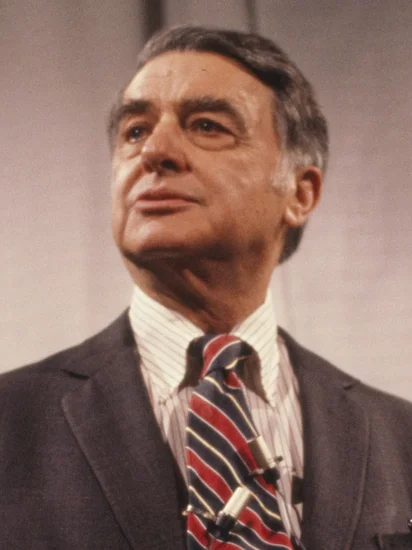
Inventor Edwin Land unveiled his groundbreaking Polaroid Land Camera to the Optical Society of America in New York City. The revolutionary device could develop and print photographs within minutes, eliminating the need for traditional darkroom processing.
Land’s instant photography technology transformed both professional and amateur photography by making picture-taking more immediate and accessible. The Polaroid camera would become a cultural phenomenon and generate billions in revenue over subsequent decades.
1918 – Last Carolina Parakeet Dies in Captivity
The final Carolina parakeet, a colorful native American bird species, died at the Cincinnati Zoo, marking the extinction of North America’s only indigenous parrot. The species had once flourished across the eastern United States before habitat destruction and hunting drove it to extinction.
The Carolina parakeet’s extinction served as an early warning about the devastating impact of human activity on native wildlife. This tragic loss helped galvanize early conservation efforts and highlighted the urgent need for species protection programs.
Cultural and Arts Events on February 21
1925 – The New Yorker Magazine Publishes First Issue
Harold Ross launched The New Yorker magazine, establishing what would become America’s most prestigious literary and cultural publication. The sophisticated weekly magazine targeted educated urban readers with witty commentary, fiction, and journalism.
The New Yorker’s distinctive blend of humor, literature, and cultural criticism quickly attracted the nation’s finest writers and artists. The magazine’s influence on American literary culture and journalism would prove immeasurable over the following decades.
1958 – Gerald Holtom Designs the Peace Symbol
British artist Gerald Holtom completed his design for what became the universal peace symbol, commissioned by the Campaign for Nuclear Disarmament. The simple yet powerful symbol combined semaphore signals for the letters “N” and “D” within a circle.
Holtom’s design first appeared at anti-nuclear protests at the Atomic Weapons Research Establishment in Aldermaston. The peace symbol rapidly spread worldwide, becoming an enduring icon of the anti-war movement and counterculture.
1952 – Bengali Language Movement Protests Erupt

Students at the University of Dhaka launched massive protests demanding recognition of Bengali as an official language of Pakistan. The demonstrations challenged the government’s policy of imposing Urdu as the sole national language on East Pakistan.
The language movement protests sparked a broader struggle for Bengali cultural rights and political autonomy. These events planted the seeds for the eventual creation of Bangladesh as an independent nation twenty years later.
Religious and Social Events on February 21
1965 – Malcolm X Assassinated in New York

Civil rights leader Malcolm X was gunned down while speaking at the Audubon Ballroom in Manhattan, silencing one of America’s most powerful voices for Black liberation. The assassination occurred during a period of ideological evolution in Malcolm X’s thinking about race relations.
Malcolm X’s death deprived the civil rights movement of a brilliant orator who had begun moving toward a more inclusive vision of human rights. His martyrdom elevated his status as an icon of Black nationalism and international human rights advocacy.
1971 – International Convention on Psychotropic Substances Signed

Delegates from around the world gathered in Vienna to sign the Convention on Psychotropic Substances, establishing international controls on mind-altering drugs. The treaty aimed to prevent abuse of psychoactive substances while ensuring their availability for legitimate medical and scientific purposes.
The Vienna Convention created a comprehensive framework for regulating LSD, amphetamines, and other synthetic drugs that had emerged in the 1960s. This international agreement became a cornerstone of global drug control policy for decades to come.
1919 – German Socialist Kurt Eisner Assassinated
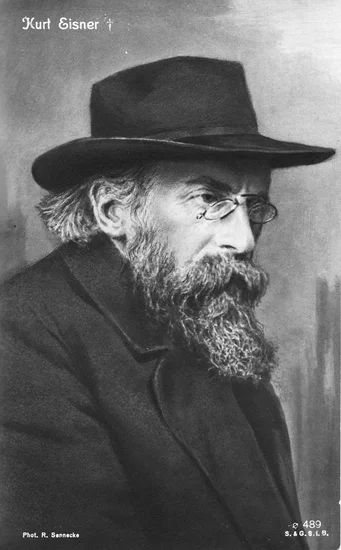
Bavarian Prime Minister Kurt Eisner was shot and killed by a right-wing extremist in Munich, triggering revolutionary chaos throughout Bavaria. Eisner’s assassination led to the proclamation of the Bavarian Soviet Republic and the flight of the state government.
The murder of this moderate socialist leader radicalized the Bavarian revolution and contributed to the political instability that plagued Germany after World War I. Eisner’s death symbolized the violent polarization that would eventually facilitate the rise of extremist movements.
Business and Economic Events on February 21
1948 – NASCAR Officially Incorporated
Bill France Sr. officially incorporated the National Association for Stock Car Auto Racing, establishing the organizational structure for America’s premier motorsports sanctioning body. NASCAR’s formation brought professional standards and national organization to the previously informal world of stock car racing.
The incorporation of NASCAR transformed regional racing into a nationwide phenomenon that would eventually become America’s most popular form of motorsports. France’s vision created a multi-billion dollar industry that spans entertainment, marketing, and automotive technology.
1994 – FBI Arrests CIA Spy Aldrich Ames

Federal agents arrested CIA officer Aldrich Ames at his Arlington, Virginia home for selling classified information to the Soviet Union and Russia. Ames had compromised dozens of intelligence operations and caused the deaths of at least ten American agents.
The Ames case represented the most damaging espionage breach in CIA history, exposing fundamental weaknesses in American intelligence security. His arrest led to comprehensive reforms in counterintelligence procedures and vetting processes throughout the intelligence community.
1995 – Steve Fossett Completes First Solo Pacific Balloon Flight

Adventurer Steve Fossett successfully landed in Leader, Saskatchewan, becoming the first person to complete a solo balloon flight across the Pacific Ocean. The dangerous journey covered thousands of miles over treacherous waters with primitive navigation equipment.
Fossett’s achievement demonstrated the possibilities for human endurance and technological innovation in extreme environments. His successful flight inspired a new generation of adventurers and contributed to advances in balloon technology and weather prediction.
Transportation and Infrastructure on February 21
1913 – Ioannina Incorporated into Greek State
The strategic city of Ioannina was officially incorporated into the Greek state following Greece’s victory in the Balkan Wars. This territorial expansion strengthened Greece’s position in the volatile Balkans and consolidated Greek control over Epirus.
The incorporation of Ioannina represented a significant milestone in Greece’s national unification and territorial expansion. The city’s integration required extensive administrative and infrastructure development to connect it with the rest of the Greek state.
1929 – Chinese Nationalist Forces Defeat Warlord Rebellion
The Chinese Nationalist Army achieved a decisive victory over warlord forces in northeastern Shandong Province, with 7,000 NRA troops defeating a 24,000-strong rebel army. The battle at Zhifu demonstrated the growing strength and organization of the Nationalist government.
This military success helped consolidate Nationalist control over strategic coastal regions and reduced the power of independent warlords. The victory marked an important step in China’s long struggle to achieve national unification under a central government.
1937 – League of Nations Bans Foreign Volunteers in Spanish Civil War
The League of Nations officially prohibited foreign nationals from serving as “volunteers” in the Spanish Civil War, attempting to prevent the conflict from escalating into a broader European war. The resolution aimed to reduce international intervention in Spain’s internal conflict.
The League’s ban proved largely ineffective as Germany, Italy, and the Soviet Union continued covert military support for their respective sides. The failure to enforce this prohibition demonstrated the League’s weakness and inability to maintain international peace.
Sports and Recreation on February 21
2013 – Terrorist Bombings Rock Hyderabad, India

Multiple bomb explosions ripped through the Indian city of Hyderabad, killing at least 17 people and injuring 119 others in coordinated terrorist attacks. The bombings targeted crowded public areas during evening rush hour to maximize casualties.
The Hyderabad attacks highlighted ongoing security challenges facing India from various terrorist organizations. The incident prompted increased security measures in major Indian cities and renewed counterterrorism cooperation between federal and state authorities.
1952 – First Modern Language Rights Demonstration
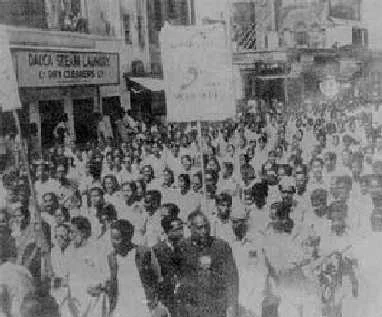
University students in Dhaka staged massive protests demanding recognition of Bengali as an official language of Pakistan, marking the birth of the modern language rights movement. The demonstrations challenged government attempts to impose Urdu as the sole national language.
The language movement protests established the principle that linguistic diversity deserves protection and recognition in democratic societies. These events inspired similar language rights movements throughout the developing world and contributed to international human rights law.
1958 – Peace Symbol Becomes Cultural Icon
Gerald Holtom’s newly designed peace symbol made its public debut at anti-nuclear protests, beginning its transformation into a universal symbol of peace and social justice. The simple yet powerful design resonated with protesters seeking a unifying emblem for their movement.
The peace symbol’s adoption by various social movements demonstrated the power of visual communication in political activism. Its widespread use across different cultures and causes established it as one of the most recognizable symbols in modern history.
Notable Births on February 21
1907 – W.H. Auden Born in York, England

Wystan Hugh Auden entered the world destined to become one of the 20th century’s most influential poets and literary critics. His childhood in industrial northern England shaped his perspective on social issues and political engagement.
Auden’s innovative poetry explored themes of love, politics, and human nature with remarkable intellectual depth and emotional resonance. His work influenced generations of writers and established him as a defining voice of modern Anglo-American literature.
1925 – Sam Peckinpah Born in California
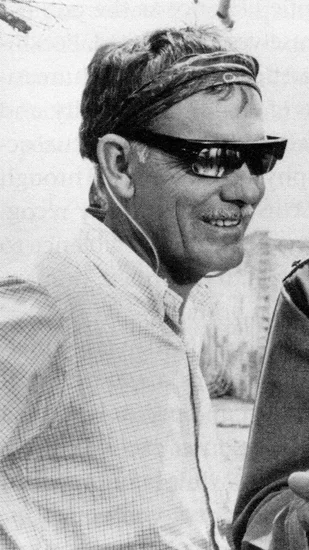
Samuel David Peckinpah was born into a ranching family in Fresno County, California, where he developed his lifelong fascination with the American West. His upbringing among cowboys and ranchers provided authentic material for his future filmmaking career.
Peckinpah revolutionized action cinema with his visceral, stylistic approach to violence and his elegiac portrayal of the dying Old West. His films like “The Wild Bunch” redefined the Western genre and influenced countless directors.
1933 – Nina Simone Born in North Carolina

Eunice Kathleen Waymon, later known as Nina Simone, was born in Tryon, North Carolina, where she first displayed her extraordinary musical talents. Her early classical piano training provided the foundation for her unique artistic voice.
Simone transformed popular music by blending jazz, blues, folk, and classical influences with powerful social commentary. Her songs became anthems of the civil rights movement and established her as both a musical genius and political activist.
1936 – Barbara Jordan Born in Texas

Barbara Charline Jordan was born in Houston’s Fifth Ward, beginning a remarkable journey that would make her a pioneering figure in American politics. Her exceptional academic abilities and oratorical skills emerged early in her education.
Jordan became the first African American woman elected to Congress from the South since Reconstruction, serving with distinction and moral authority. Her powerful speeches during the Watergate hearings elevated her to national prominence as a defender of constitutional principles.
1946 – Alan Rickman Born in London

Alan Sidney Patrick Rickman was born in Hammersmith, London, where he developed his distinctive voice and theatrical presence. His working-class background and artistic sensibilities shaped his approach to acting and character development.
Rickman became one of Britain’s most respected actors, masterfully portraying complex villains and sympathetic characters with equal skill. His performances in film and theater demonstrated remarkable range and established him as a beloved cultural figure.
1958 – Mary Chapin Carpenter Born in New Jersey

Mary Chapin Carpenter was born in Princeton, New Jersey, where she began developing her storytelling abilities and musical sensibilities. Her childhood experiences across different American regions influenced her later songwriting about American life.
Carpenter became one of country music’s most thoughtful and literate artists, crafting songs that explored complex emotions and social issues. Her intelligent, introspective approach to country music earned critical acclaim and numerous Grammy Awards.
1962 – Chuck Palahniuk Born in Washington

Charles Michael Palahniuk was born in Pasco, Washington, where he experienced the working-class American life that would later inform his provocative fiction. His unconventional upbringing and diverse job experiences provided rich material for his writing.
Palahniuk revolutionized contemporary fiction with his transgressive, darkly comic novels that explored alienation in modern society. His breakthrough novel “Fight Club” became a cultural phenomenon and established him as a major literary voice.
1979 – Jordan Peele Born in New York

Jordan Haworth Peele was born in New York City, where he developed his sharp comedic timing and social awareness. His mixed-race background and urban upbringing informed his later work exploring racial dynamics in America.
Peele transformed from successful comedian to groundbreaking filmmaker, creating horror films that brilliantly examine racial tensions and social issues. His directorial debut “Get Out” redefined the horror genre and established him as a major cinematic voice.
Notable Deaths on February 21
1965 – Malcolm X Assassinated at Age 39

Malcolm X, the influential civil rights leader and human rights activist, was gunned down while speaking at the Audubon Ballroom in Manhattan. His assassination silenced one of America’s most powerful voices for Black liberation and international human rights.
Malcolm X’s death deprived the world of a brilliant orator who had evolved from Black separatist to international human rights advocate. His martyrdom elevated his status as an icon of resistance and inspired generations of activists worldwide.
1926 – Heike Kamerlingh Onnes Dies at Age 72

Dutch physicist Heike Kamerlingh Onnes, winner of the 1913 Nobel Prize in Physics, passed away after revolutionizing low-temperature physics. His groundbreaking work included the discovery of superconductivity and the first liquefaction of helium.
Kamerlingh Onnes’s scientific achievements laid the foundation for modern cryogenics and quantum physics research. His discoveries about superconductivity would eventually lead to revolutionary applications in medicine, transportation, and computing technology.
1945 – Eric Liddell Dies at Age 43

Scottish rugby player and Olympic champion Eric Liddell died in a Japanese internment camp in China, where he had been serving as a missionary. His death ended the life of a man who had famously chosen religious conviction over Olympic glory.
Liddell’s principled stand at the 1924 Olympics, when he refused to compete on Sunday, made him a symbol of faith and athletic excellence. His life story inspired the Academy Award-winning film “Chariots of Fire” and continues to inspire athletes and believers.
1958 – Duncan Edwards Dies at Age 21

English footballer Duncan Edwards succumbed to injuries sustained in the Munich air disaster, ending one of the most promising careers in football history. Edwards had been considered England’s brightest prospect and a cornerstone of Manchester United’s young team.
Edwards’s death in the Munich tragedy robbed football of a generational talent who had already established himself as one of England’s finest players. His legacy as the greatest English player of his generation remains intact decades after his premature death.
1972 – Bronislava Nijinska Dies at Age 80
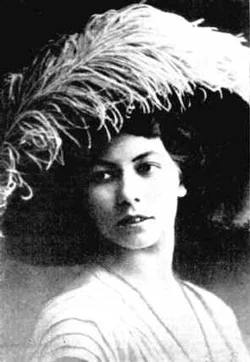
Russian-American dancer and choreographer Bronislava Nijinska passed away after revolutionizing modern ballet through her innovative choreographic work. Sister of the legendary Vaslav Nijinsky, she created groundbreaking ballets that pushed artistic boundaries.
Nijinska’s choreographic genius produced masterpieces like “Les Noces” and “Les Biches” that transformed classical ballet into modern art. Her influence on contemporary dance and ballet continued through the many dancers and choreographers she trained and inspired.
1984 – Mikhail Sholokhov Dies at Age 78
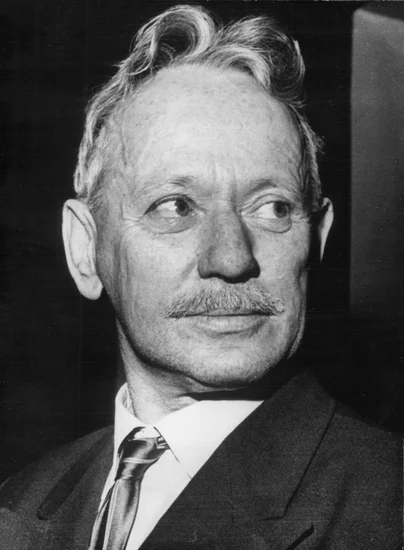
Soviet novelist Mikhail Sholokhov, winner of the 1965 Nobel Prize in Literature, died after creating some of the most powerful works of 20th-century Russian literature. His epic novel “And Quiet Flows the Don” captured the tumultuous changes in Russian society.
Sholokhov’s literary achievements earned him international recognition and established him as one of the great chroniclers of the Russian experience. His works provided profound insights into the human cost of historical upheaval and social transformation.
Holidays and Observances on February 21
International Mother Language Day
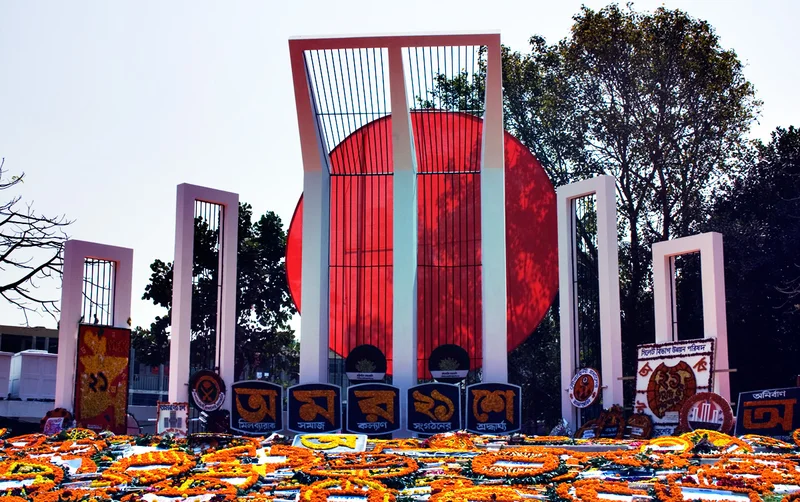
UNESCO established International Mother Language Day to promote linguistic diversity and multilingualism worldwide. The observance honors the martyrs of the 1952 Bengali Language Movement and recognizes the importance of mother languages in cultural preservation.
This global celebration encourages the protection of endangered languages and supports multilingual education initiatives. The day serves as a reminder that linguistic diversity represents a fundamental aspect of human cultural heritage that deserves protection and celebration.
Language Movement Day in Bangladesh

Bangladesh observes Language Movement Day as a national holiday commemorating the 1952 student protests that demanded recognition of Bengali as an official language. The day honors the sacrifices made by those who died defending their linguistic rights.
The Language Movement became a crucial step in Bangladesh’s eventual independence from Pakistan in 1971. This observance celebrates the power of language as a unifying force and symbol of national identity and cultural pride.
Armed Forces Day in South Africa
South Africa celebrates Armed Forces Day to honor the men and women serving in the South African National Defence Force. The day recognizes the military’s role in protecting the nation and supporting peace and stability in the region.
Armed Forces Day provides an opportunity for South Africans to show appreciation for their military personnel and reflect on the importance of national defense. The observance includes ceremonies, displays, and public events that strengthen civilian-military relations.
Birthday of King Harald V in Norway

Norway celebrates the birthday of King Harald V, who has served as the country’s constitutional monarch since 1991. The day is marked by official ceremonies, public celebrations, and expressions of loyalty to the Norwegian royal family.
King Harald V’s birthday serves as a unifying national celebration that brings together Norwegians from all walks of life. The observance reinforces Norway’s constitutional monarchy and the role of the royal family in representing national unity and continuity.
